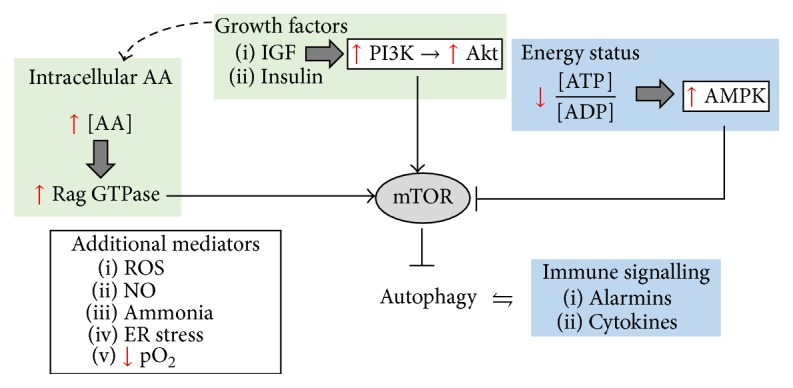Figure 1.

Autophagy plays a key role in energy homeostasis, immune regulation, and a generic stress response to various insults. Growth factor signalling is known to inhibit autophagy directly but may also influence autophagy indirectly, by controlling the cellular import system for AAs. High levels of AAs (in particular, essential AAs such as the BCAA, leucine) also inhibit autophagy through activation of mTOR. In contrast, low energy status upregulates AMPK, which in turn inhibits mTOR, resulting in an increase in autophagy. Autophagy can also be activated by immune effectors including TLR-4 activation or alarmins or via cytokine such as Il1-b and IFN-γ. Also, autophagy modulates these inflammatory mediators, for example, by degrading the inflammasome. Finally, autophagy as a generic stress response is also upregulated under hypoxic conditions, or in response to oxidative stress.
